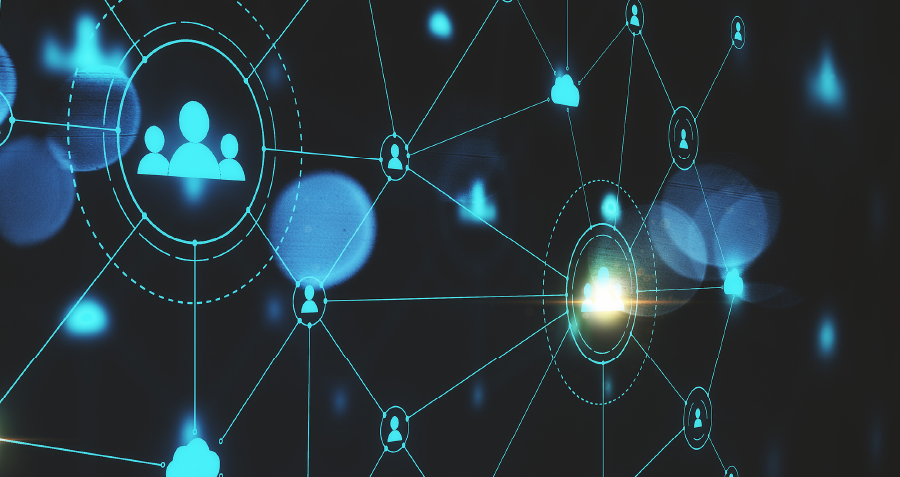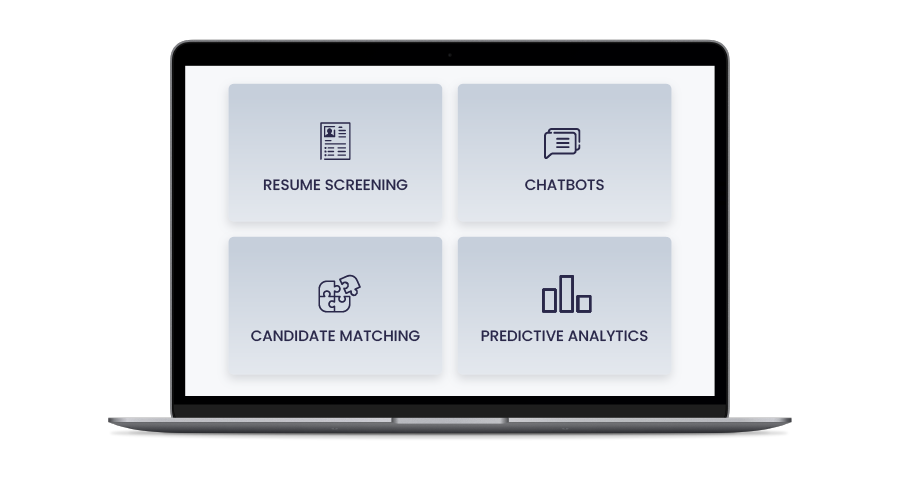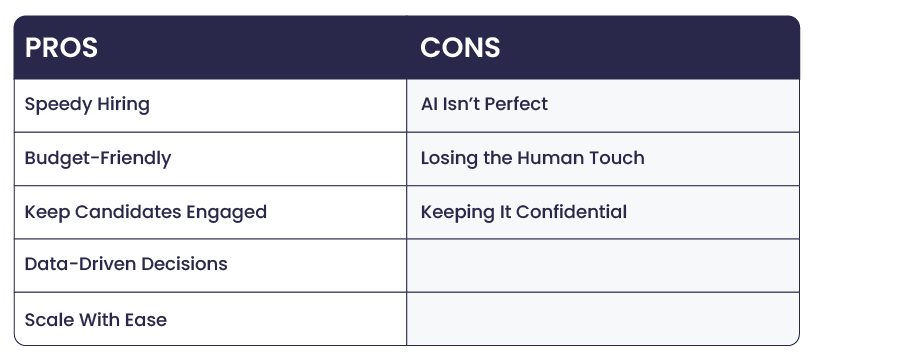
Artificial Intelligence (AI) is transforming industries worldwide, and recruitment is no exception. From streamlining hiring processes to improving talent acquisition strategies, AI in recruitment offers a range of benefits that employers can leverage to gain a competitive edge. This blog explores how artificial intelligence is changing the recruiting process, the benefits it brings, and how employers can embrace AI-powered recruiting to optimize their hiring strategies.
The Role of AI in Recruitment
AI is already integrated into many stages of the recruitment process, making it more efficient and data-driven. Here’s a breakdown of how AI is reshaping the industry:
- Resume Screening: AI-powered recruiting tools automatically screen resumes by analyzing candidate data, such as qualifications, experience, and skills. These tools help eliminate resumes that don’t meet job requirements and prioritize the most qualified candidates.
- Candidate Matching: AI algorithms compare resumes and profiles against job descriptions, ranking applicants based on their suitability and allowing employers to focus on candidates with the highest potential.
- Chatbots: AI-based hiring solutions, like chatbots, engage candidates in real-time, providing immediate responses to inquiries and scheduling interviews. This increases efficiency, reduces response time, and offers a smoother candidate experience.
- Predictive Analytics: By analyzing past hiring data, AI tools can predict the success of candidates based on factors like qualifications, experience, and personality traits. This helps employers identify high-potential hires, increasing the likelihood of long-term success.
AI allows employers to move beyond simple keyword matching and make data-backed decisions that enhance the overall recruitment process.

Benefits of AI in Recruitment
Employers who use AI in recruitment can unlock numerous advantages that make the hiring process faster, more cost-effective, and aligned with their hiring goals. Here are some of the most notable benefits:
- Time Efficiency: Automating time-consuming tasks such as resume screening, allows recruiters to focus on more strategic aspects of recruitment like interviewing and relationship-building.
- Cost Savings: By increasing hiring efficiency, AI helps reduce overall recruitment costs. With fewer manual tasks and the ability to scale recruitment efforts, companies save time and money in the long run.
- Enhanced Candidate Experience: AI chatbots, for example, provide candidates with instant feedback and a more engaging experience. This improves communication and keeps top candidates interested throughout the hiring process.
- Improved Decision-Making: AI tools rely on data, making hiring decisions more objective and less influenced by unconscious biases. This leads to better and more diverse hiring decisions.
- Scalability: AI recruitment tools can process large volumes of applicants, making them ideal for companies that need to hire quickly or manage a high volume of applications, such as for seasonal roles or fast-growing organizations.
AI tools have also been shown to improve employee satisfaction beyond the hiring process. Read more about these efforts and the benefits of implementing them in your workplace here.
Challenges of AI in Talent Acquisition
While AI in recruitment offers many benefits, it also brings challenges that need to be addressed for optimal results:
- AI Bias in Recruitment: Some AI tools can unintentionally reinforce biases in recruitment if trained on biased historical data, potentially favoring certain demographics or overlooking qualified candidates from underrepresented groups. Employers must ensure AI systems are transparent, audited regularly, and adjusted to prevent bias.
- Over-Reliance on Technology: While AI tools are valuable, they should complement—not replace—human judgment. The human touch is essential when assessing cultural fit, emotional intelligence, and interpersonal skills.
- Privacy Concerns: AI tools require access to large amounts of candidate data, raising privacy concerns. Employers must adhere to data protection regulations (like GDPR or CCPA) and ensure that candidate information is handled securely and ethically.

The Future of Healthcare Hiring
Enter collaborative hiring, the future of healthcare recruitment. This innovative approach blends cutting-edge AI tools with human expertise to create a hiring process that’s faster, smarter, and fairer. At the forefront of this transformation is ProfiHitch, a platform specifically designed to tackle healthcare recruitment challenges head-on.
ProfiHitch incorporates AI into its employer dashboard, designed to focus exclusively on matching qualifications and skills with advanced filter options. Candidate and employer profiles remain anonymous and confidential until mutual interest is established. This system is built to eliminate bias, address privacy concerns, and streamline the hiring process while fostering genuine human connections between candidates and employers.
Conclusion
AI is transforming recruitment by increasing efficiency and data-driven decision-making. Key trends to watch include:
- Personalized Candidate Experiences: AI will enhance the candidate journey with tailored job recommendations and interview prep, keeping candidates engaged. Learn more about ProfiHitch for job seekers here.
- Advanced Predictive Analytics: AI will offer deeper insights into candidate performance, helping employers make more informed hiring decisions.
- Ethical AI: Companies will prioritize transparent, unbiased AI systems to promote diversity and fairness in hiring.
While AI streamlines tasks and improves hiring, addressing challenges like bias and over-reliance on technology is crucial. By adopting AI responsibly, employers can stay ahead in talent acquisition while making fair, objective decisions.



